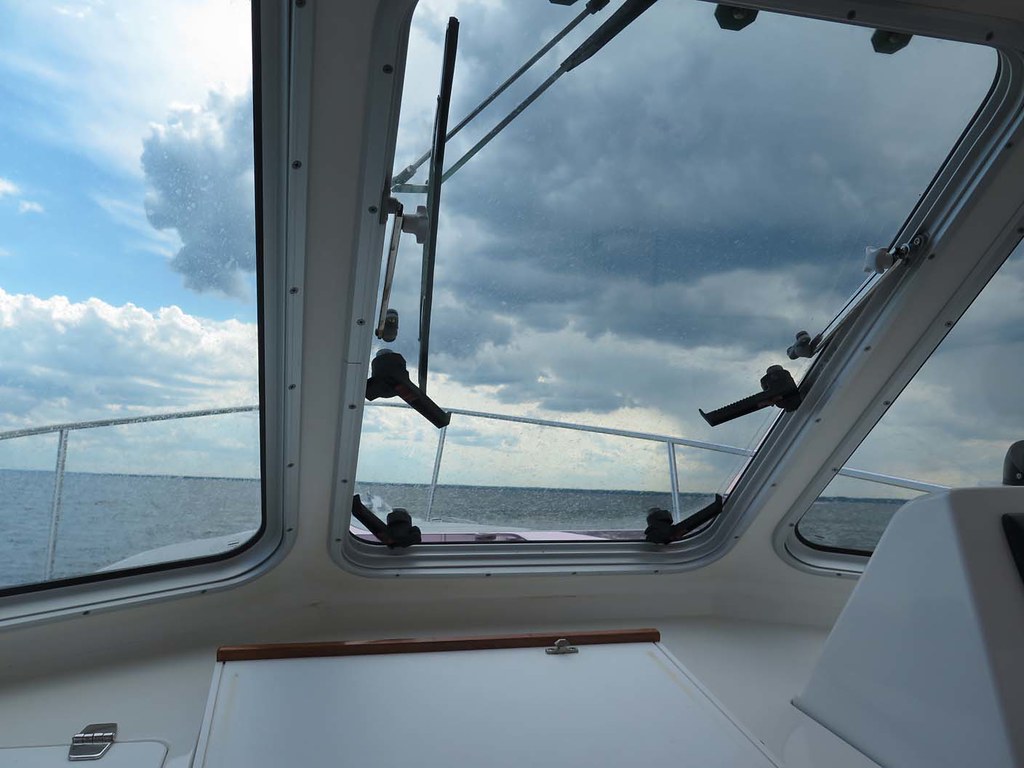
Boating In Stormy Weather
Picture this: you’re out on the boat with your loved ones and all of a sudden you hear stormy weather brewing in the distance. While you can often watch out for storms before heading out on your trip, it never hurts to know what to do if you’re suddenly caught in a storm.
It goes without saying that you should always have life vests aboard when boating. You should also notify a family member, who is not accompanying you on your trip, of your boating plans regardless of the type of weather you’re expecting. In addition, if the weather conditions are looking particularly stormy, you should reschedule your trip for a more accommodating day.
Here are some tips for boating in stormy weather:
First, make sure to have back-up essentials.
Here are some key items to have on board:
- External battery phone charger: In the event that your phone battery gets drained, pack an external battery phone charger to charge your phone so that you can communicate your location during a storm.
- First-aid kit: Make sure you have your first-aid kit stocked with the essentials.
- Flashlights: If the power goes out on your boat, it never hurts to have backup flashlights.
- Portable marine battery jump starter: This will also be very helpful if you lose power.
Head to shore quickly, yet safely.
While this might seem like common sense, you must head to shore during stormy weather instead of trying to tough it out. It’s certainly important to head back to shore quickly, but you shouldn’t do so in a hurry by speeding and putting your passengers at risk. Remain calm so that you can safely navigate back to shore.
Lower any Bimini tops and curtains.
During stormy weather, it’s likely that the wind will pick up. When you see stormy weather encroaching, it’s time to lower the boat tops and curtains in case the wind picks up, and they become troublesome or dangerous when you’re trying to navigate back to shore.
Know what to do if there’s lighting.
First, clear your view. In addition to lowering any boat tops, remove any fishing rods, antennas and loose items out of the way. Next, disconnect any backup batteries to prevent them from being damaged if lightning does strike. Then you should record your GPS coordinates so that you can communicate this via radio or your cell phone. Lastly, tell your passengers to take refuge in the boat cabin until the storm passes.